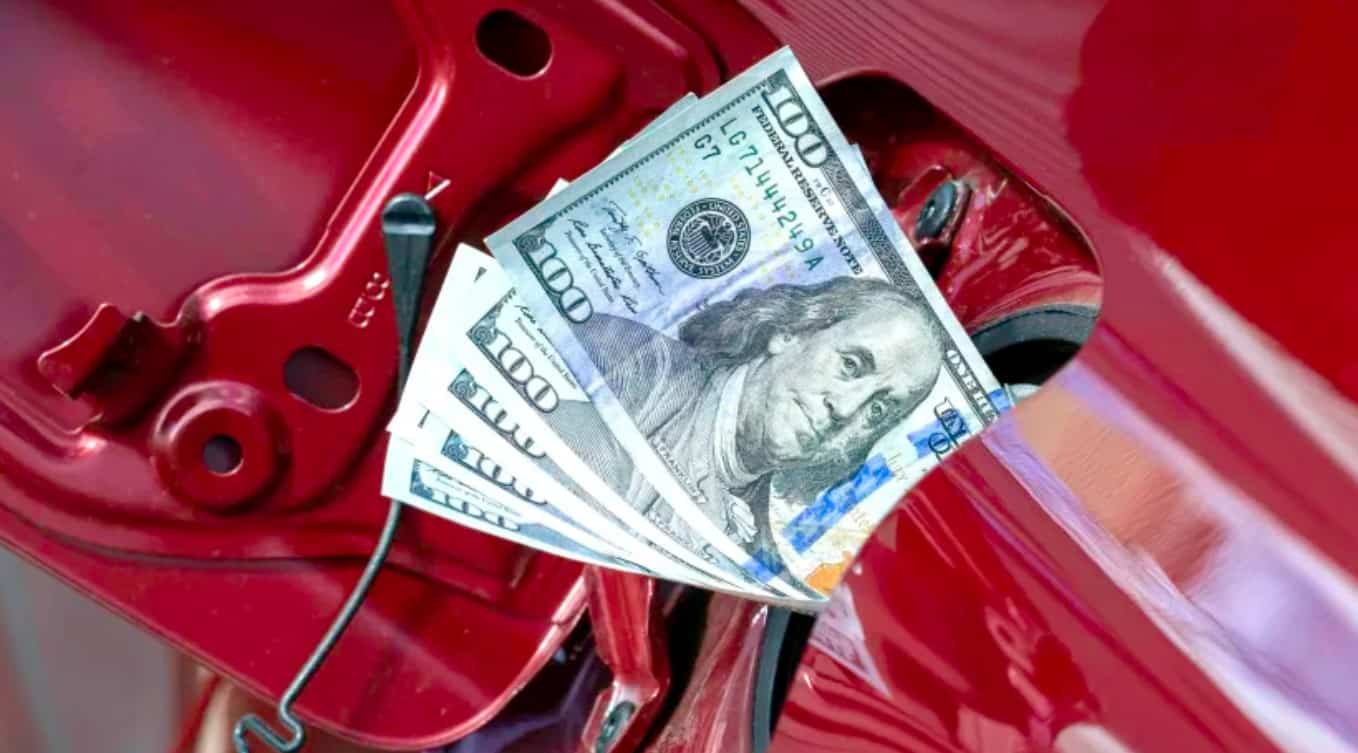As gasoline prices keep climbing, many frustrated drivers might be asking “Who controls gas prices?” The short answer is: No one person, company or government can really be said to set gas prices.
But it is possible to break down some of the major factors that go into determining what a gallon of gas sells for.
Let’s take a look.
Crude Oil
The Department of Energy has a handy chart that breaks down the major expenses involved in turning crude oil in the ground into the refined gas you can put in your car.
The biggest, accounting for a bit more than half the price you pay, is the price of crude oil – the raw material from which gas is refined.
Unfortunately, the price of that raw material has been on a tear for over a year now, bringing gas prices higher with it. West Texas Intermediate crude now trades for about $110 per barrel. A year ago, it was only $65 per barrel. In 2020, during the depths of the recession caused by COVID-19, WTI prices briefly turned negative because global oil demand fell so fast that oil storage facilities filled up with unwanted oil. Since then, global oil demand has come roaring back, but global oil output has been slower to recover from the cuts that OPEC and many energy companies implemented.
Unfortunately, there’s little sign of oil prices dropping much for now, which makes it hard to say when gas prices will go down, either.
Taxes
The next biggest factor determining gas prices, according to the Department of Energy, is gas taxes – specifically, the state, local and federal taxes levied on fuel.
No one loves paying taxes, but they can’t be blamed for the recent run-up in gas prices. The 18.4-cent-per-gallon federal tax on gas hasn’t been increased in about three decades. Some states have actually cut or suspended their own gas taxes recently in an attempt to give motorists some relief.
Sadly, those reductions haven’t done anything to keep the average price of gas from hitting new records.
Other Factors Determining the Price of Gas
The remaining factors controlling gas prices are a mix of related costs: refining crude into gasoline and other fuels, transporting it to stations by pipeline and truck, and marketing it.
This bucket of costs includes refiners’ profits on turning barrels of oil into barrels of gasoline, and these days, those profits are soaring. Some refineries closed due to the slump in fuel demand during the pandemic, which means bigger profit margins for those that remain, now that demand is strong.
If you want to share in some of those profits as an investor, instead of just funding them as a driver, check out these three refiner stocks to consider buying. Maybe they will provide some comfort during your next expensive fill-up.

